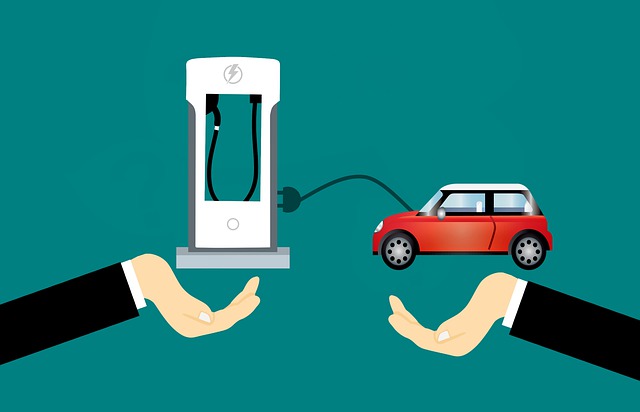
As the world continues to evolve, so do our transportation systems. Electric vehicles becoming popular among Indians, and the Indian government has recognized this trend. In this guide, we will explore the various electric vehicle incentives offered in India, helping you to make an informed decision when it comes to buying an EV.
Central Government Incentives
The Indian government has rolled out several incentives aimed at promoting the adoption of electric vehicles. The most notable of these incentives include the Faster Adoption and Manufacturing of Electric Vehicles (FAME) scheme, which provides financial incentives for the purchase of EVs, and the National Electric Mobility Mission Plan (NEMMP), which aims to have 6-7 million EVs on Indian roads by 2020.
State Government Incentives
In addition to the central government incentives, many states in India have their motivations for electric vehicles. For example, the Delhi EV policy provides incentives for the purchase of electric two-wheelers, three-wheelers, and four-wheelers. Similarly, the Maharashtra EV policy offers incentives such as exemption from road tax and registration fees for electric vehicles.
Corporate Incentives
Corporate entities in India are also incentivizing the use of electric vehicles. Many companies offer EV charging infrastructure at their offices and manufacturing plants, while some have even introduced EV leasing programs for their employees.
Charging Infrastructure
One of the biggest concerns for potential EV buyers is the availability of charging infrastructure. Fortunately, the Indian government has recognized this and has introduced the National Electric Mobility Mission Plan (NEMMP) to set up charging infrastructure across the country. In addition, many private companies are also investing in EV charging stations, making it easier for drivers to charge their vehicles on the go.
Electric Vehicle Incentives in India:
1. FAME India Scheme:
FAME (Faster Adoption and Manufacturing of Electric Vehicles) India Scheme was launched by the Ministry of Heavy Industries and Public Enterprises in 2015 to promote the adoption of electric and hybrid vehicles in the country. The scheme provides financial incentives for buying EVs to the manufacturers, as well as the buyers.
Under the FAME India Scheme, buyers can avail of a subsidy of up to Rs. 1.5 lakhs for electric cars and up to Rs. 30,000 for electric two-wheelers. The scheme also provides incentives for the establishment of EV charging stations, with a total budget of Rs. 10,000 crores.
2. State Government Incentives:
Apart from the FAME India Scheme, several state governments in India have also introduced incentives to promote EV adoption. Here are some of the state-specific incentives:
- Delhi: Delhi government provides a subsidy of up to Rs. 30,000 for electric two-wheelers and up to Rs. 1.5 lakhs for electric cars. The government also provides a waiver of road tax and registration fees for EVs.
- Maharashtra: The Maharashtra government provides a subsidy of up to Rs. 10,000 for electric two-wheelers and up to Rs. 1 lakh for electric cars. The government also provides a waiver of road tax and registration fees for EVs.
- Tamil Nadu: The Tamil Nadu government provides a subsidy of up to Rs. 20,000 for electric two-wheelers and up to Rs. 50,000 for electric cars. The government also provides a waiver of road tax and registration fees for EVs.
3. GST Reduction:
In July 2019, the government reduced the Goods and Services Tax (GST) on electric vehicles from 12% to 5%. This reduction in GST makes electric vehicles more affordable for buyers, as it reduces the price of EVs.
4. Income Tax Benefits:
In the 2019 Union Budget, the government announced that electric vehicle buyers can avail of income tax benefits of up to Rs. 1.5 lakhs on the interest paid on loans taken to purchase electric vehicles.
5. Exemption from Toll Tax:
In several states, EVs are exempted from paying toll tax. This exemption can save EV buyers a considerable amount in the long run.
6. Discounts on Charging:
Several EV charging stations in India offer discounts to EV users. For instance, the Tata Power EV charging stations provide a discount of 15% to EV users in Mumbai.
Conclusion:
Electric vehicles are the future, and the Indian government has recognized this. With a range of incentives available, including financial assistance and tax exemptions, there has never been a better time to invest in an electric vehicle. By choosing an EV, not only are you doing your part to reduce your carbon footprint, but you’re also helping to build a sustainable future for generations to come.
FAQs:
Buyers of electric two-wheelers, three-wheelers, and four-wheelers are eligible for the FAME India scheme.
The subsidy amount varies depending on the type of EV and ranges from INR 1,500 to INR 15,000 per kWh of battery capacity.
The GST rate on electric vehicles in India is 5%.
Read Next Blog:
What is GigaFactory and Why is it So Important in India?






